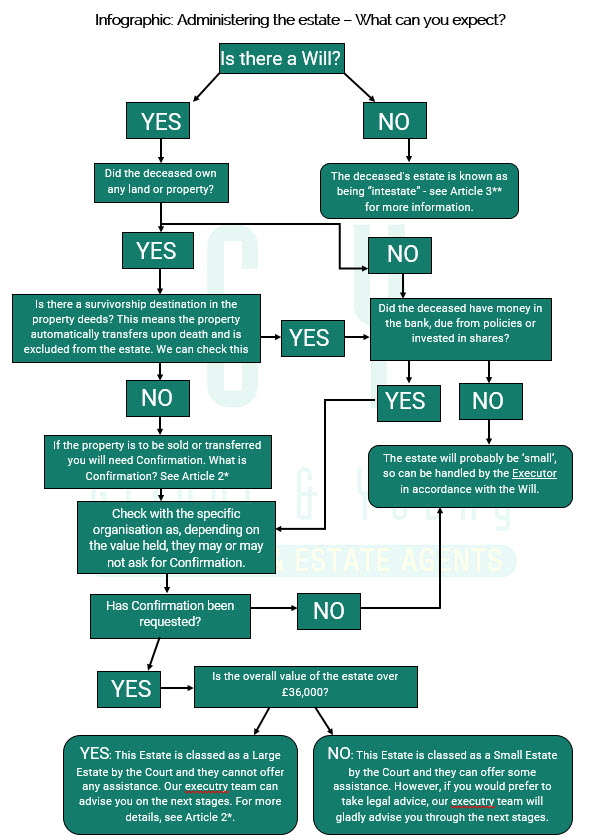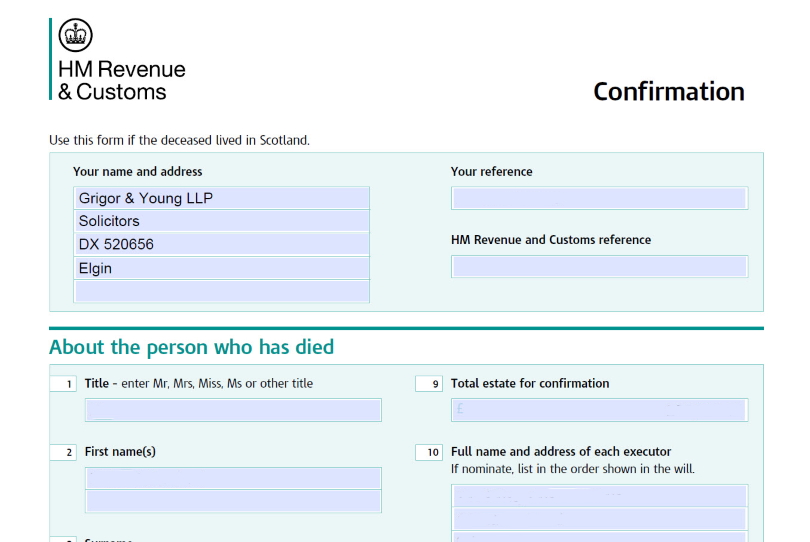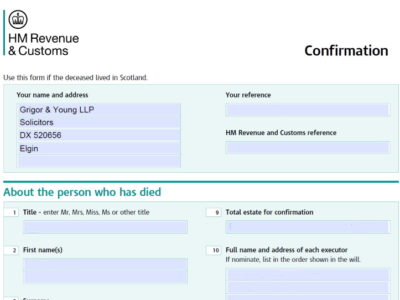NOTE: This is Part 2 of a 3-part series on the legal steps you need to take and the process you need to go through if a loved one passes away. Part 1 – First Legal Steps after the Death of a Loved One – can be found here. And Part 3 (about the procedure where someone dies without a Will) is here.
Many legal websites urge people to get a Will in place in order to simplify matters upon death and to ensure your worldly possessions (known as your estate) are distributed as you wish.
If you die without a Will, you die ‘intestate’.
And the way your estate is distributed – and by whom – is determined by the law of intestacy and the Court.
We explain this more in detail in Part 3 of this 3-part series of articles.
But where there IS a Will in place…
And hopefully there WILL be a Will in place because the ‘no will’ situation is unsatisfactory in so many ways.
As you can see from our Infographic, below (downloadable as a PDF here), having a Will does not necessarily mean that the Court will not be involved as many estates require an application for ‘Confirmation’ – which we will explore further below.

Executry process and acting as Executor.
The main purpose of your Will is to give directions regarding how you want your estate to be divided up upon your death.
A key part of your Will is to appoint your executor/s who will manage your estate in accordance with your instructions.
An executor acts as a representative for the deceased and must pay off any debts or taxes from the estate (money/property) and then distribute the balance in accordance with their Will. The executor is also legally responsible if any mistakes are made when administering the estate.
Some of the key tasks of an executor are:
- Prepare the Inventory of all the money, furniture, savings and any house or other property and assets belonging to the deceased – this is known as their estate. It is important to check through their paperwork thoroughly to ensure all assets are accounted for.
- Pay inheritance tax, if this is due. Inheritance tax is not in general payable unless the total value of the estate (together with any property transferred and then held in life-rent and any gifts made within 7 years of the death) exceeds £325,000. Please note these figures are adjusted from time to time. You can get further information and advice about Inheritance Tax from HMRC.
- Obtain Confirmation to the estate, unless all assets can be dealt with without Confirmation.
- Close accounts etc and distribute the assets in accordance with the Will.

What is Confirmation and will you need it?
Although having a Will does make the task of administering an estate a lot more straightforward, depending what the deceased’s estate is made up of, an Application for Confirmation may be necessary to enable your Executor to gather in the deceased’s estate.
Our Infographic, below, will give you an idea whether Confirmation may be required or not.
Confirmation is authorisation granted by the Sheriff Court in the area the deceased resided in.
It gives an executor authority to receive payments from banks, insurance companies and other organisations or persons who have property or money belonging to the deceased to close accounts or hold, sell or transfer assets. The executor needs to produce the Confirmation to the relevant organisation / person to obtain payments, transfer or sell property etc..
Payments and assets not requiring Confirmation.
To assist people, many banks and originations allow accounts to be closed and funds released without requesting Confirmation. They have set their own limits for this – typically around £30,000 – £50,000. Any assets over this will require Confirmation.
How to apply for Confirmation.
An Inventory of all assets will need to be provided to the Court on the approved form. All assets belonging to the deceased should be listed in the Inventory, even if an account has already been closed or a joint account put into one name. Depending on the circumstances, several additional forms will need to be submitted to the Court, along with the relevant Court fee and most recent Will.
If there is Inheritance Tax payable, or a relief from Inheritance Tax is being claimed, the forms must be sent to the Tax Office first.
In the case of small estates (valued at £36,000 or under) simplified rules apply and the Sheriff Clerk can offer assistance when applying for Confirmation. Larger estates are more complicated and the Sheriff Clerk cannot offer assistance with these. The application process is an administrative task and a court appearance or hearing is not required.
Getting Advice.
Please note that the values contained in this information are subject to change in accordance with government policy. For further information regarding executries please consult government and HMRC sources.
If you believe that an estate you are handling requires an application for Confirmation and would like our assistance to administer an executry, our experienced executries team would be pleased to assist you.
Please give us a ring on 01343 544077 and one of our team will chat you through the next steps.
Alternatively, complete and submit a Free Online Enquiry to give us basic details of your query, or to request that we should call you back.
All initial enquiries are free of charge and without obligation. Don’t be stuck.



 Richard Miller joins the partnership
Richard Miller joins the partnership